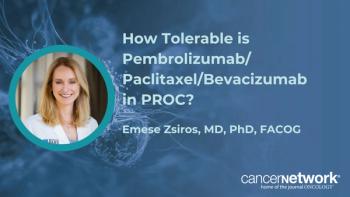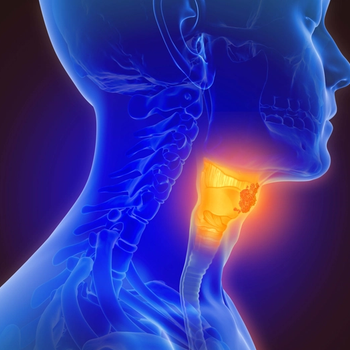
FDA Grants Fast Track Designation to DKN-01 for Gastric and Gastroesophageal Junction Cancer
The designation was granted to DKN-01 for the treatment of patients with gastric and gastroesophageal junction adenocarcinoma whose tumors express high levels of DKK1.
The FDA granted fast track designation to DKN-01 for the treatment of patients with gastric and gastroesophageal junction adenocarcinoma whose tumors express high Dickkopf-1 protein (DKK1), following disease progression on or after prior fluoropyrimidine- and platinum- containing chemotherapy and if appropriate, HER2/neu-targeted therapy, according to Leap Therapeutics, the developer of the agent.
Notably, the first patient was dosed in a combination study of DKN-01 plus tislelizumab (BGB-A317) in patients with gastric or gastroesophageal junction cancer in September 2020.
"We are pleased with the FDA's decision to grant fast track designation for the development of DKN-01 to treat patients with gastric and gastroesophageal junction cancer whose tumors express high levels of DKK1," Douglas E. Onsi, president and chief executive officer of Leap, said in a press release. "The designation highlights the existing unmet medical need for new and effective treatments for this patient population. We believe that DKN-01 shows promise as a novel treatment option for biomarker-selected patients with these cancers, and this designation provides us with earlier and more frequent opportunities to interact with the FDA during the development of DKN-01."
DKN-01 is a humanized monoclonal antibody that binds to and blocks the activity of DKK1 protein, a modulator of Wnt/Beta-catenin signaling, which is a signaling pathway often involved in tumorigenesis and suppressing the immune system. Currently, DKN-01 is being evaluated in clinical trials for gastroesophageal, gynecologic, hepatobiliary, and prostate cancers.
DKN-01 has also previously received orphan drug designation for the treatment of gastric and gastroesophageal junction cancer from the FDA.
Reference:
Leap Therapeutics Announces FDA Fast Track Designation Granted to DKN-01 for the Treatment of Gastric and Gastroesophageal Junction Cancer [news release]. Cambridge, Massachusetts. Published September 24, 2020. Accessed September 24, 2020. https://investors.leaptx.com/news-releases/news-release-details/leap-therapeutics-announces-fda-fast-track-designation-granted
Newsletter
Stay up to date on recent advances in the multidisciplinary approach to cancer.










































